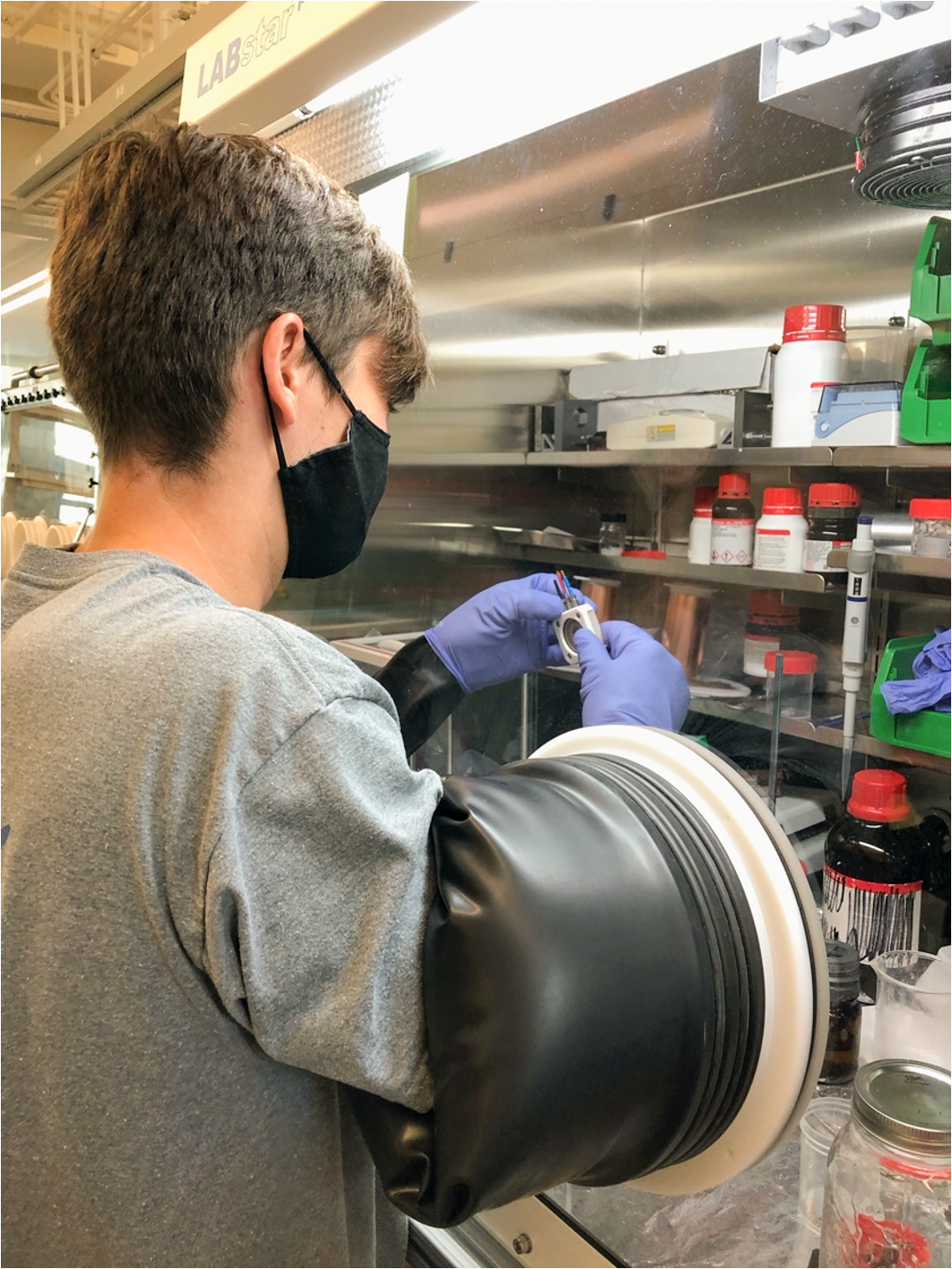Making Batteries Last Longer and Deliver More Energy
KEVIN WOOD
Mechanical Engineering
Energy storage is one of the most critical challenges facing 21st century society.
Dr. Kevin Wood specializes in electrochemical energy storage devices including next generation Li metal batteries. Lithium metal is critical to battery technology as it could enable electric vehicles to travel from San Diego to Seattle on a single charge. Unfortunately, dangerous growths called dendrites occur when charging these battery systems. Dendrites reduce battery capacity and can cause catastrophic fires, preventing the use of high energy density lithium metal in commercial applications.
Dr. Wood is collaborating with an electric vehicle battery provider to understand the origins of dendrite growth and how to prevent these damaging deposits from forming. They are engineering solutions that will enable lithium metal electrodes for electric vehicles to improve driving range and safety.
Support for this research comes from Belenos Clean Power Holding Ltd.
“Batteries are the most prevalent energy storage solution and hold the key to a clean electric grid
and electrification of high energy density potable applications (such as cars and buses).” -Kevin Wood

Ph.D. student Alex Aleshin working in the glovebox which keeps reactive battery materials usable and safe to work with.

Interface Design Lab principal investigator Dr. Kevin Wood


Degradation of battery electrodes during cycling. The black material build up is called Dead-Li, and causes cell failure. Photos by Interface Design Lab.
